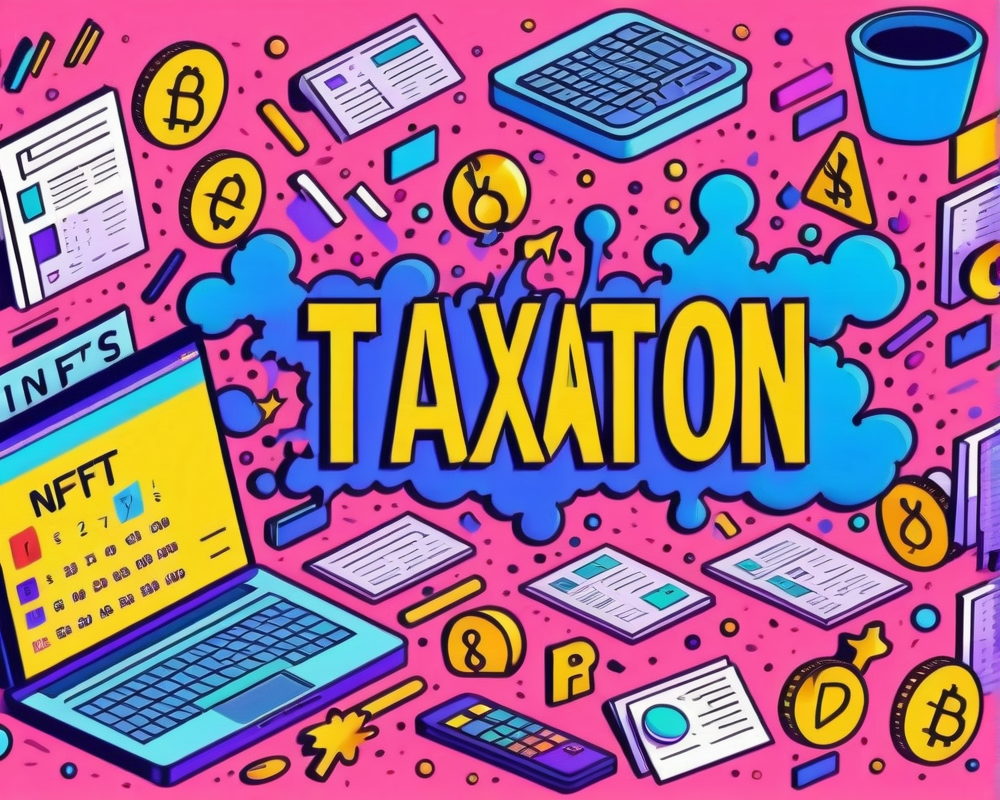The NFT Boom: A Taxing Reality
2021 wasn’t just the year we collectively decided to shorten our attention spans with TikToks; it was also the year of nonfungible tokens (NFTs). From the colorful realms of Beeple’s digital art to the social status symbols like Bored Ape Yacht Club, $23 billion in trading volume seems more like a line from a sci-fi movie than a reality. However, amid this frenzy, one must not forget: Uncle Sam is watching.
Tax Implications on Purchases
Here’s the kicker: you might just find yourself taxed when you buy your shiny new NFT. If you’re using cryptocurrency like Ether (ETH), brace yourself! The IRS considers this a taxable event, which can lead to capital gains or losses depending on how your crypto performed before you made that splurge. Suddenly investing in digital art doesn’t seem as fun, does it?
- If you purchased ETH at $1800 and used it to buy an NFT worth $3000, your capital gain is $1200.
- Better start crunching numbers and setting aside some cash before April rolls around!
The Tax Tangle of Selling Your NFT
Ever thought your NFT would lead to a treasure trove of gains? Well, make sure to consult the tax man when it’s time to sell. Much like that popular saying in the crypto space, “Buy the rumor, sell the news” — but don’t forget, the tax is real.
When you decide to part ways with your beloved NFT, whether for fiat, crypto, or trading it for another collectible, the taxable income you report will depend on the difference between what you paid and what you received. A heart-wrenching decline in value? You may just claim that as a capital loss!
Are Your NFTs Collectibles?
The classification of NFTs for tax purposes is murky at best and could make Congress look like a group of organized thinkers. Certain physical assets like baseball cards and rare coins fall under collectible tax laws, potentially subjecting gains from NFTs considered as collectibles to a higher tax rate of 28% instead of the usual 0% to 20% rates!
Are your NFTs works of digital art? Are they collections of animated cats? If so, get ready for some hefty conversations with your accountant.
“My NFT is worth a fortune!”
Sure, in your dreams. Don’t forget taxes can turn dreams into nightmares.
Short-Term Gains vs. Long-Term Pain
For most NFT investors, the reality is that many transactions occur within a year. This means short-term capital gains kick in — and they come at ordinary tax rates, which can sting worse than stepping on a Lego in the dark. Regardless of whether your NFT is classified as a collectible, some unpleasant surprises await in tax season.
Final Thoughts: Stay Informed!
Navigating the world of NFT investment while keeping the IRS in your rearview mirror requires knowledge and preparation. Always consult a tax professional as you dive into digital waters. While the clarity from the IRS might be foggy like a Chicago morning, proactive steps can help you avoid a tax disaster that could lead to sleepless nights.
Remember to keep records, set aside funds for taxes, and, above all, enjoy the ride — just pay your taxes on time!




